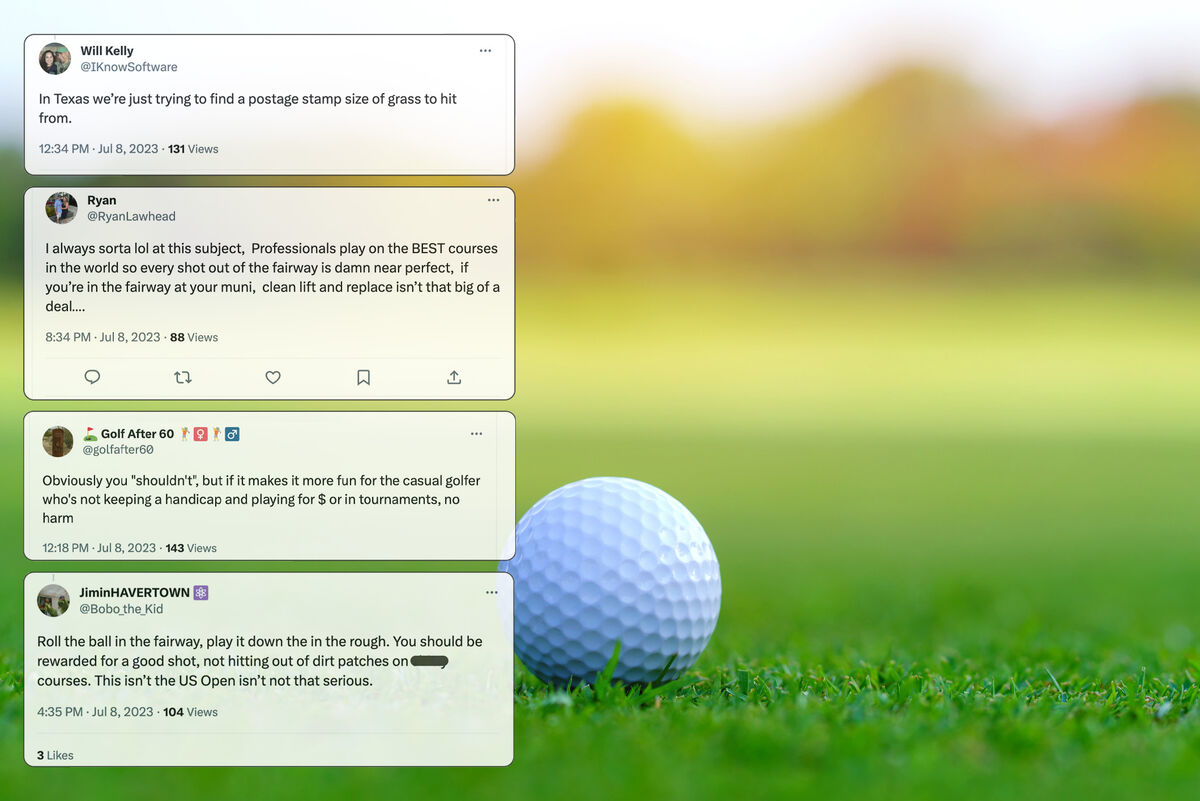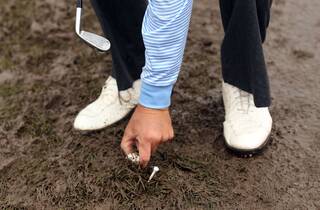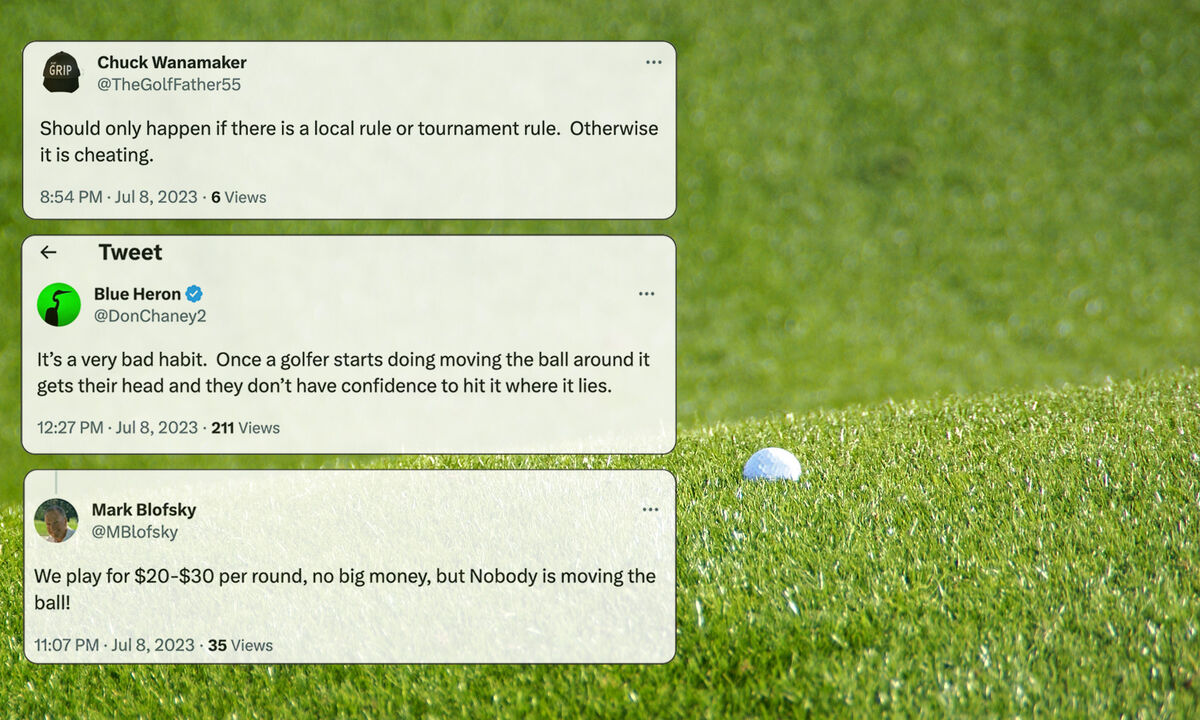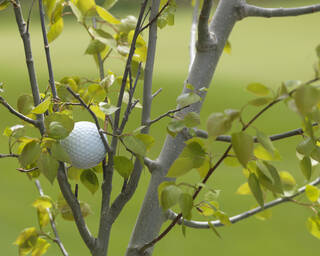4 Reasons Why You Should Never Improve Your Lie

Golf ball sitting in a divot in the fairway
Everyone knows that golf is a game of honor and integrity. The only thing is, honor and integrity mean different things to different people.
For example, you pipe a drive down the fairway, only to find it in a less-than-perfect lie. Do you accept your fate and play it as it lies because that’s what the Rules of Golf instruct you to do? Or, do you use that 9 iron to roll it just a couple harmless inches, into a much better lie, one that you earned with that stout tee shot?
The debate over preferred lies, as it turns out, is hotter than a Memorial Day tee time.
Preferred Lies
Let’s start with the folks who support improving their lie, which, if you’ve played many casual rounds, you’ve noticed is a pretty high percentage of recreational golfers.
These folks might call it fluffing their lie, rolling the ball, or even make it sound official by calling it "preferred lies" or “lift, clean and place” despite perfect weather conditions.

Golfers explain why they use preferred lies
Most rule-benders cite sub-par course maintenance as the reason for rolling their rock. Phrases like “I paid to play off grass so why should I hit out of a divot?” and “Why should I be punished for hitting the fairway?” are routine.
There’s also the argument that if you’re a mediocre player, why should you test yourself against the highest standards that the world’s best players are held to? Not only that, but those players – the world’s best – also have the advantage of the world’s best course conditions. Meanwhile, you’re often searching for the best deal at a local public track, which usually means patchy fairways.
Helpful Hack
When weather conditions result in an extremely wet course, preferred lies, also known as lift, clean, and place, is acceptable under the Rules of Golf. The Committee makes that decision, which can be the course pro, or the tournament or league committee for competitive rounds.

The Golfer's Guide to Winter Rules: Proceed With Confidence in Every Situation
Following the Letter of the Law
If you’re playing for money, you better play by the Rules. That’s the sentiment of the rule-followers.
Any stakes, even just a couple dollars a side, ought to be enough to compel any golfer to stick to the letter of the law, or in this case, the Rules of Golf.

Golfers explain why they always play the ball down
These players will also point out that, if you’re loose with the Rules when there’s nothing at stake, you’ll be more tempted to break them even when there’s cash on the line. Or worse, when tournament time comes, you won’t be prepared to handle the unfair hand that golf often deals.
Not to mention, if you plan on posting your round for handicap purposes, the Rules of Handicapping are crystal clear. If your round is not played by the Rules of Golf, the score is not acceptable for handicap purposes. In other words, if you improve your lie – or break any other Rule – don’t even think about posting that round to your handicap.
Of course, if the golf course staff, tournament committee, or whoever is running your league informs you that Lift, Clean and Place rules are in effect, then you’re in the clear to follow those procedures without jeopardizing your “official” round.

The Official "Play It As It Lies" Golf Rule (And Exceptions)
4 Reasons You Must Play it As it Lies
Whatever you do during your casual rounds is your own business, but there are some scenarios when you simply must follow the Rules, no matter how unfair you find them to be.
Here are four reasons to never improve your lie:
- If there is money at stake, even if it’s just a dollar or two, your competitors will take exception to your methods, and it could even lead to an undesirable reputation within the club.
- If you’re competing in any sort of tournament or league play, it’s a quick two-stroke penalty. This should go without saying, but if you move your ball, you are considered to have played from the Wrong Place, and the penalty for that is two strokes.
- As we just established, if you keep a handicap, you can’t post your scores from rounds when you didn’t follow all the Rules, posting a round as official after you broke the Rules is a big no-no.
- Fluffing your lie during your round would negate any milestone round, including your first time breaking 100, 90, or 80; breaking par, or setting a course record (we can dream, right?). Of course, you won’t know your score until after the final putt drops (that’s right, no gimmies!) so it’s best to be a rule-follower from the opening tee shot.
True Lies
Was the 79 you shot after improving your lie on every-other hole better than the 81 you posted in a tournament round while following the Rules to a tee? You don’t want to be stuck wondering.
In golf, your biggest competition is usually yourself. Every round you play becomes a benchmark by which you’ll judge the next. The only way to truly know if you’re beating your past self is to play by the same rules.
That’s why honor and integrity are baked into the game of golf.